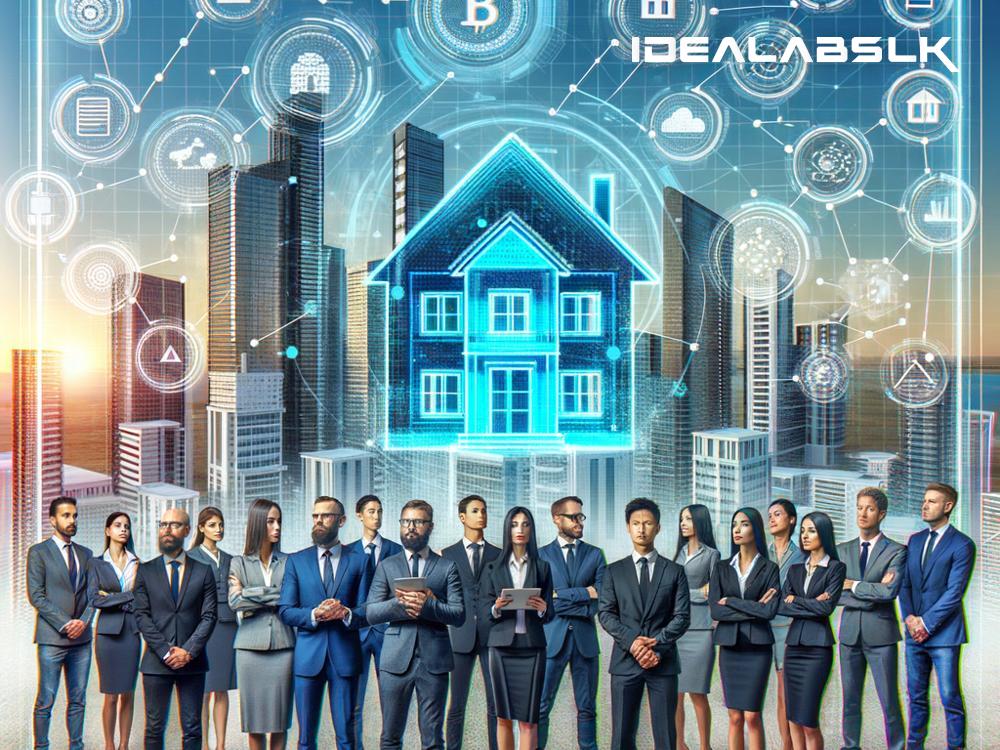Title: Blockchain for Real Estate: Simplifying Investment Through Technology
In recent years, blockchain technology has had a remarkable impact across various sectors, with the real estate industry being no exception. This innovative technology, best known for being the backbone of cryptocurrencies like Bitcoin, is now paving new pathways for real estate investment. But what exactly is blockchain, and how is it transforming the real estate sector? Let's break it down into simpler terms and explore how distributed ledger technology is revolutionizing real estate investments.
Understanding Blockchain in Simple Terms
At its core, blockchain is a type of database but with a twist. Imagine a digital ledger that keeps a record of transactions or contracts securely. Unlike traditional databases where one central authority controls the data, blockchain distributes its data across several computers. This means no single entity has control, making it a decentralized system. Each 'block' in the chain contains a number of transactions, and every time a new transaction occurs, a record of that transaction is added to every participant's ledger. It's like having a notebook that automatically copies itself every time a new note is made, ensuring everyone has the updated version.
The Traditional Real Estate Investment Model
Investing in real estate has always been viewed as a solid financial move, but it hasn't been without its challenges. The traditional process involves a lot of paperwork, middlemen, and, frankly, time. From brokers to legal checks to banks, every step adds complexity, cost, and time to transactions. Furthermore, investing in real estate has traditionally required a significant capital outlay, putting it out of reach for many.
Revolutionizing Real Estate with Blockchain
Enter blockchain technology. Here's how it's starting to change the game:
-
Simplifying Transactions: Blockchain introduces the concept of smart contracts. These are self-executing contracts where the terms of the agreement are directly written into lines of code. When conditions are met, the contract automatically enforces itself. In real estate, this could mean automated lease agreements or sales transactions without the need for intermediaries, saving both time and money.
-
Enhancing Transparency: Since the blockchain is a decentralized system, it offers a level of transparency previously unseen in the real estate market. Every transaction is recorded on the blockchain, visible to all parties involved, reducing the likelihood of fraud and ensuring trust in transactions.
-
Tokenization of Assets: One of the most exciting aspects of blockchain in real estate is the concept of tokenization. This means converting the value of a real estate asset into digital tokens that can be bought or sold on the blockchain. It's like slicing a pizza; rather than buying the whole property (pizza), investors can buy a slice (token), making real estate investment more accessible to a broader audience. This can democratize real estate investment, opening up opportunities for smaller investors.
-
Improving Liquidity: Real estate is traditionally known as an illiquid asset; it takes time to sell. However, with tokenization and blockchain, these assets become more liquid. Tokens can be traded much like stocks on an exchange, potentially allowing investors to exit their investments more swiftly and efficiently.
-
Streamlining Due Diligence: The transparency and immutability of blockchain can significantly streamline the due diligence process in real estate transactions. Historically, verifying the history of a property, checking for liens, or ensuring compliance has been time-consuming and costly. With blockchain, much of this information can be instantly verified on the ledger, speeding up the process and reducing costs.
The Road Ahead
While the integration of blockchain in real estate is still in its early days, the potential benefits it offers are immense. From making investments more accessible to streamlining transactions and enhancing security, blockchain stands to revolutionize the traditional real estate market.
However, adoption won't happen overnight. There are regulatory, technological, and market hurdles to overcome. Education around blockchain and fostering a better understanding of its applications in real estate will be key to its widespread adoption.
In conclusion, the marriage between blockchain and real estate promises to bring about more efficient, transparent, and accessible real estate transactions. As this technology continues to evolve and mature, it's not hard to imagine a future where blockchain is at the heart of every real estate transaction, creating a more inclusive and streamlined investment landscape for all.

